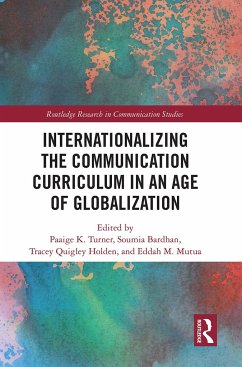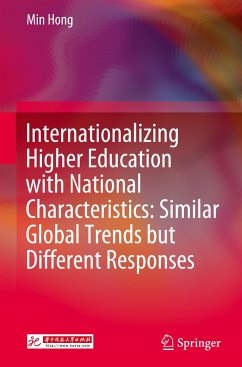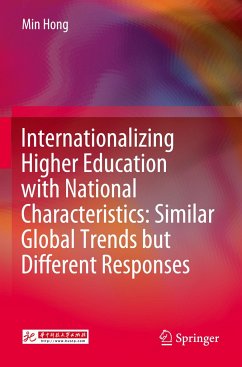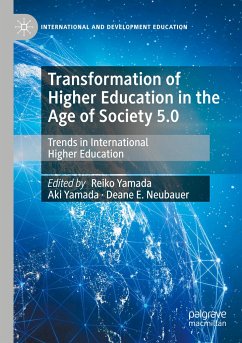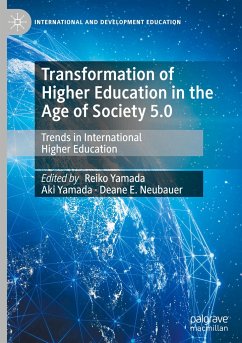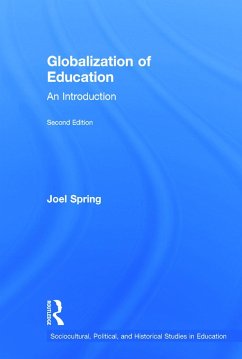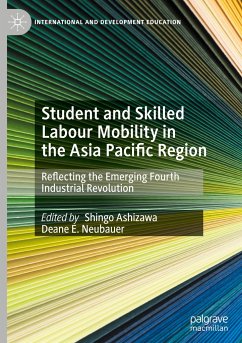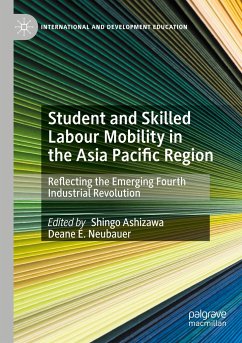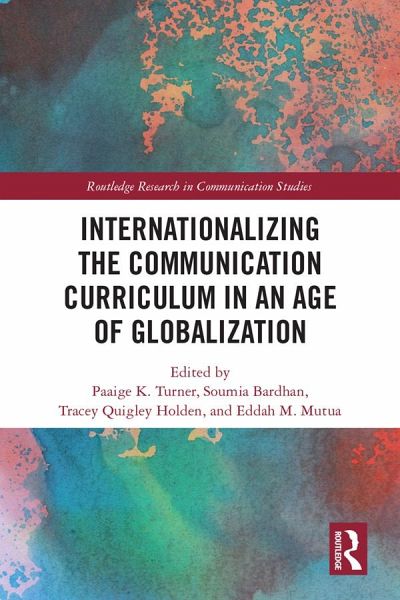
Internationalizing the Communication Curriculum in an Age of Globalization
Versandkostenfrei!
Versandfertig in 1-2 Wochen
168,99 €
inkl. MwSt.

PAYBACK Punkte
84 °P sammeln!
Globalization and the resulting internationalization of universities is driving change in teaching, learning, and what it means to be educated. This book provides exemplars of how the Communication discipline and curriculum are responding to the demands of globalization and contributing to the internationalization of higher education. Communication as a discipline provides a strong theoretical and methodological framework for exploring the benefits, challenges and meanings of globalization. The goal of this book, therefore, is to facilitate internationalization of the communication discipline ...
Globalization and the resulting internationalization of universities is driving change in teaching, learning, and what it means to be educated. This book provides exemplars of how the Communication discipline and curriculum are responding to the demands of globalization and contributing to the internationalization of higher education. Communication as a discipline provides a strong theoretical and methodological framework for exploring the benefits, challenges and meanings of globalization. The goal of this book, therefore, is to facilitate internationalization of the communication discipline in an era of globalization. Section one discusses the theoretical perspectives of globalism, internationalization, and the current state of the Communication discipline and curriculum. Section two offers a comprehensive understanding of the role, ways, and impact of internationalizing teaching, learning, and research in diverse areas of study in Communication, including travel programs and initiatives to bring internationalization to the classroom. The pieces in this section will include research-based articles, case studies, analytical reviews that exam key questions about the field, and themed pieces for dialogue/debate on current and future teaching and learning issues related to internationalizing the Communication discipline/curriculum. Section three provides an extensive sampling of materials and resources for immediate use in internationalization in communication studies; sample syllabi, activities, examples, and readings will be included. In sum, our book is designed to enable communication curriculum and communication courses in other disciplines to be internationalized and to offer different approaches to enable faculty, students, and administrators to incorporate and experience an internationalized curriculum regardless of time and financial limitations. This book is notable as a professional development resource for individuals both inside and outside the communication discipline who wish to incorporate a global perspective into their research and classrooms.



